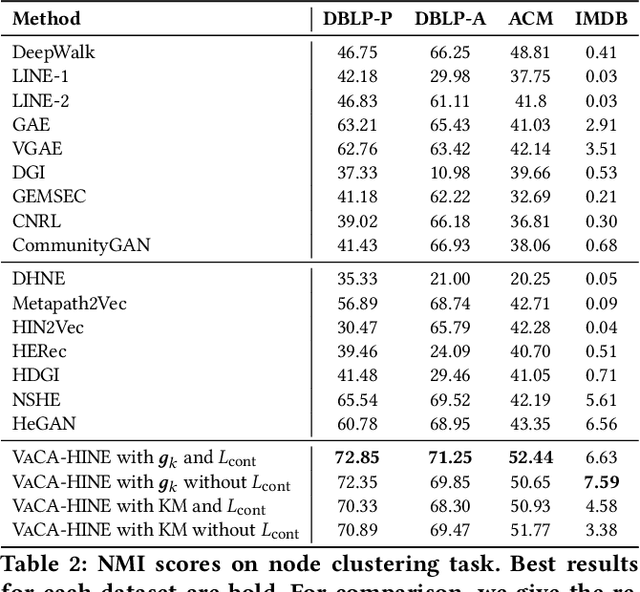A Framework for Joint Unsupervised Learning of Cluster-Aware Embedding for Heterogeneous Networks
Paper and Code
Aug 09, 2021



Heterogeneous Information Network (HIN) embedding refers to the low-dimensional projections of the HIN nodes that preserve the HIN structure and semantics. HIN embedding has emerged as a promising research field for network analysis as it enables downstream tasks such as clustering and node classification. In this work, we propose \ours for joint learning of cluster embeddings as well as cluster-aware HIN embedding. We assume that the connected nodes are highly likely to fall in the same cluster, and adopt a variational approach to preserve the information in the pairwise relations in a cluster-aware manner. In addition, we deploy contrastive modules to simultaneously utilize the information in multiple meta-paths, thereby alleviating the meta-path selection problem - a challenge faced by many of the famous HIN embedding approaches. The HIN embedding, thus learned, not only improves the clustering performance but also preserves pairwise proximity as well as the high-order HIN structure. We show the effectiveness of our approach by comparing it with many competitive baselines on three real-world datasets on clustering and downstream node classification.
 Add to Chrome
Add to Chrome Add to Firefox
Add to Firefox Add to Edge
Add to Edge